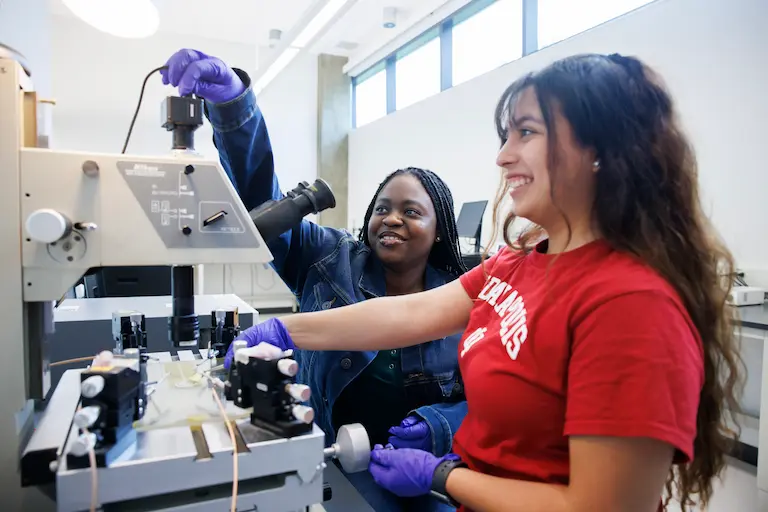Develop the expertise to drive innovation at the intersection of engineering and healthcare. In this program, you’ll master core principles alongside cutting-edge tech like AI, machine learning, and computational modeling to tackle complex health challenges. Through hands-on learning, clinical rotations, internships, and research with top healthcare and biotech partners, you’ll gain practical experience that prepares you to lead in the field.
This program specializes in biomedical device engineering, system design, mobile and imaging technologies, bio-nanotechnology, and tissue engineering—providing you with the expertise to excel in the fast-growing biotech industry.




